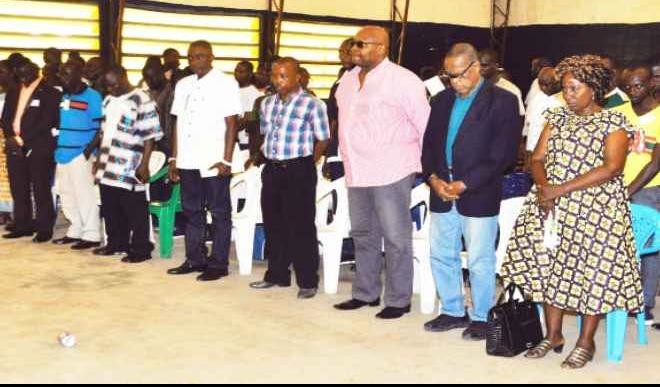Liberian presidency: Fahnbulleh raises revolutionary flag
As official campaigning in the contest for the Liberian presidency commences this week political analysts and observers throughout the entire West African sub-region will be taking note of the conduct of the process. The successful outcome of this exercise will symbolise the consolidation of Africa’s oldest republic’s restoration of normalcy after years of brutal internal […]


As official campaigning in the contest for the Liberian presidency commences this week political analysts and observers throughout the entire West African sub-region will be taking note of the conduct of the process. The successful outcome of this exercise will symbolise the consolidation of Africa’s oldest republic’s restoration of normalcy after years of brutal internal conflict. It will also provide observers of the democratic space in Africa with the opportunity to scrutinise a unique and inimitable process that reflects elements of Liberia’s historic political divide between progressive transformers and preservers of the status quo. Nothing reflects this dynamic more than the emergence of Dr. Boima Fahnbulleh, one candidate whose antecedents are historic and recognisably transformational. Dr. Fahnbulleh’s emergence as the flag-bearer of the Liberian Peoples Party (LPP) was particularly surprising since he is the long-serving National Security Adviser to the Government of Madam Ellen Johnson Sirleaf who is a member of the Unity Party (UP).
When the LPP held its convention in the rural town of Ganta, and chose Dr. Fahnbulleh to be its flag-bearer, the news caught many observers throughout West Africa, and among the political elite in Liberia, off-balance. This is because most observers of African political affairs usually assume that officials who hold high office in any African government are most likely to manifest loyalty to the leader under whose authority they serve. In that light the popular presumption that President Ellen Johnson Sirleaf is supporting the aspiration of her Vice President Hon. Joseph Boakai, who is standing on the ticket of the UP suggests that an official of Fahnbulleh’s stature who served her government with exemplary efficiency and success would follow her lead. That, however, would be to ignore the historic echoes with which Dr. Fahnbulleh’s family name reverberates in the Liberian polity.
He is the scion of the late Ambassador Henry Boima Fahnbulleh Sr. who, even though he was regarded as a member of the political elite in the Tubman era, was persecuted for standing up for the welfare of the common man, and expressing a preference for populist governance. His late mother Ma Mary Brownell was also a legendary reformer and Dr. Fahnbulleh’s stance as an advocate of truly revolutionary transformation in governance dates back several decades and includes some moments of extraordinary and memorable courage. He was appointed Minister of Education and later Foreign Minister by Samuel Doe in the years that followed the first military coup but when he found the conduct of the military leader inimical to the principles that he espoused he became a highly vocal opponent of the administration. Fahnbulleh has since been a notably articulate proponent of transformational governance for Liberia and while he has held important posts in Liberian Administrations, including in the Interim Government of Dr. Amos Sawyer during the brutal civil war he has remained the most popular advocate of radical ideological change among the serious political thinkers to whom young Liberians are prepared to listen.
Although the record of electoral results in recent times have not favoured contestants promoting the radical agenda Dr. Fahnbulleh’s emergence as flag-bearer of the LPP has signaled the resurgence of a historic element of Liberian political discourse. In his acceptance speech he promised to resist the blandishments of the privileged class and to mount a total battle against corruption in public office. Dr. Fahnbulleh’s speech was replete with references to the memory of exemplary African leaders such as Nkrumah, Samora Machel, and Mandela. While some local observers to whom we spoke after the announcement were not surprised at his tone they expressed surprise that he had decided to run at all as they believed that the challenge to the incumbent party would be dominated by the glamorous campaigning of the more traditionally conservative candidates such as three-time aspirant Charles Brumskine of the Liberty Party, and former football star George Opong Weah who would also be making a third attempt to parlay his stardom into political fortune. However Dr. Fahnbulleh’s supporters assert that it is precisely because most of those running for office appear to be touting elitist privilege and political vanity that it is necessary for someone to inject the element of serious transformational discourse into the contest. They argue that Liberia contains a substantial constituency of young radical thinkers and revolutionary activists whose interests must be articulated as a part of the political agenda unleashed by the constitutional end of Mrs. Johnson Sirleaf’s tenure. Dr. Fahnbulleh’s emergence as flag-bearer of a party that promotes radical idealism is expected to appeal to this constituency.
